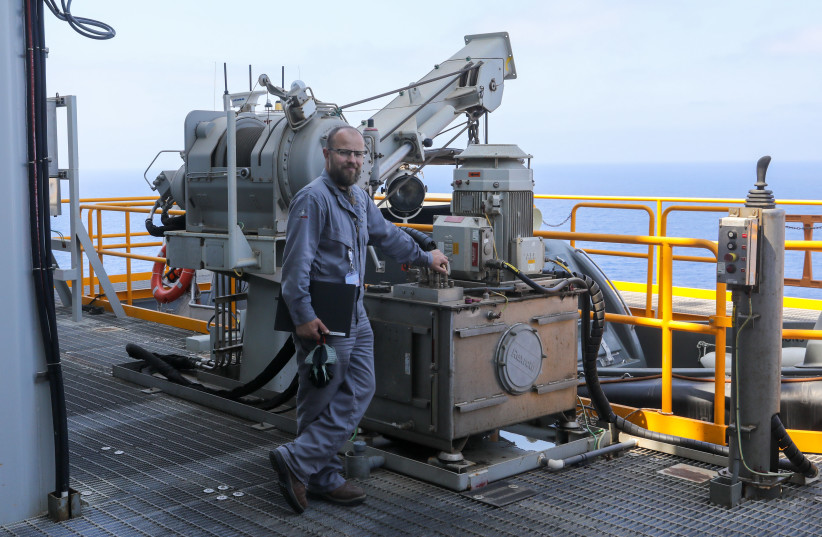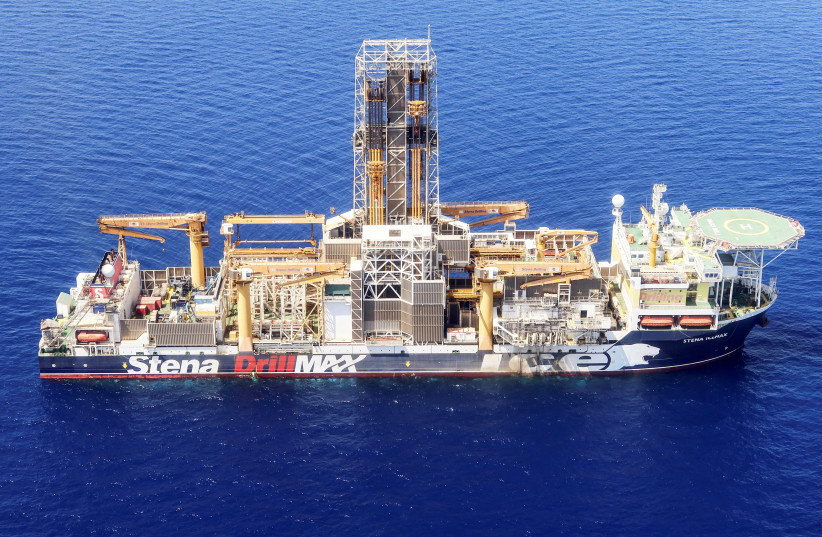by Lahav Harkov
Lebanon's new border demands now including the northern end of the Karish natural gas field caused the US-mediated negotiations to break down.
 |
MANY STAFFERS are Americans who fly back home for a month before returning for another month’s duty.
(photo credit: MARC ISRAEL SELLEM)
|
Israel and Lebanon have a long-standing dispute that includes disagreements on the demarcation of land and sea borders.
In October 2020, the US brought Lebanese and Israeli officials to Nakoura, a city in southern Lebanon near Rosh Hanikra, where headquarters for the UN Interim Force in Lebanon are located, for indirect negotiations over the maritime border.
After the massive explosion in Beirut Port in August 2020 and growing public criticism of Hezbollah’s role in Lebanon, the country showed greater readiness to hold talks with Israel – though its negotiators would not sit in the same room as Israelis.
The dispute between Lebanon and Israel, which began over a decade ago, involves an 860-sq.km. triangle in the Mediterranean Sea, which would be about 2% of Israel’s economic waters. Israel entered the talks agreeing to split the area 58:42 in favor of Lebanon, which would like to start drilling for gas as soon as possible to help dig itself out of its ongoing economic crisis.

Karish
The talks broke down when Lebanon sharply increased its demands after four rounds of US-mediated talks, almost tripling the disputed area to 2,300 sq.km. to include the northern end of the Karish natural gas field. In response, Israel prepared its own new map, doubling its demands.
However, unlike the original lines making up the 860-sq.km. triangle, neither side submitted its new proposal to the UN, making Lebanon’s demand unofficial in Israel’s view.
Although, within days of the government’s formation last year, Energy Minister Karin Elharrar expressed willingness to “consider creative solutions to bring the matter to a close,” and Lebanon said it was ready for further talks, negotiations did not resume.
Earlier this month, Energean hooked up a production ship to the Karish gas field in Israeli waters about 80 km. west of Haifa, and planned to start delivering gas from the reservoir later this year.
Energean said on Monday that it plans to “immediately commence hook-up and commissioning operations” at Karish, and start to deliver gas from the reservoir in the third quarter of this year.
Lebanese President Michel Aoun claimed that the vessel entered “the disputed maritime area with Israel,” and threatened that, in Beirut’s view, “any action or activity in the disputed area represents a provocation and an aggressive action.”
In response, Defense Minister Benny Gantz, Foreign Minister Yair Lapid and Elharrar warned that Israel is prepared to defend Karish, which it called a strategic asset. They said the rig is located several kilometers south of the zone in dispute and will not pump gas from that area.
The progress on Karish comes as Israel has been negotiating with the European Union to export gas to Europe via Egypt, following sanctions on Russia over its war against Ukraine. Israel has been preparing to double its export capacity in the coming years.
Lahav Harkov
Source: https://www.jpost.com/business-and-innovation/energy-and-infrastructure/article-709617
No comments:
Post a Comment